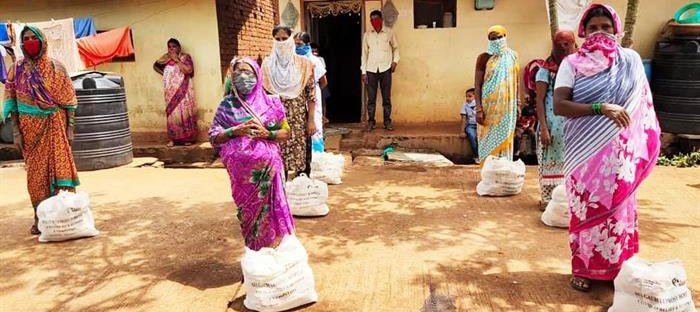Now would be the worst time to forget about people affected by leprosy

Over the last few months, Covid-19 has utterly dominated our world. As this new disease shut down one country after another, governments focused on their own immediate needs and the financial strain on households and churches skyrocketed overnight. Meanwhile people affected by leprosy have been placed in incredibly difficult circumstances. Despite the difficulties many of us are facing, now would be the worst time to forget about people affected by leprosy.
Work to defeat leprosy took a big hit thanks to Covid-19
The global pandemic has meant that governments have gone into emergency mode and the economies of countries worldwide have received enormous blows. We have worked with governments to provide leprosy treatment during the pandemic, but there have been many areas of our work that have been limited due to the necessary government lockdown restrictions.
These lockdown restrictions have also meant that many people affected by leprosy are no longer able to make a living because they cannot go to work or sell goods. Although their livelihoods have been taken away from them for the last few months, people affected by leprosy have not necessarily received the government support they need during this time to pay for food and other necessities.
As well as a lack of support from governments, income for leprosy-focused NGOs is also reduced. This is because churches who give to work to defeat leprosy are no longer meeting together for fundraisers or to take a financial collection. As well as this, many households are struggling as people worry about losing their jobs or having their income reduced. All this means that there is less money to support people affected by leprosy.
The Leprosy Mission has continued the fight to transform lives and defeat leprosy, but that work has become harder this year.
The most vulnerable have never been more vulnerable
As we have seen already, many people affected by leprosy are not earning money due to lockdown restrictions. On top of this, leprosy is a disease that primarily affects people with reduced immune systems. This means that they could also be at greater risk from Covid-19. Patients are also not receiving support with ulcer care, physiotherapy, and many other key areas of leprosy care.
Life has become a lot harder for people affected by leprosy. Read Mallama’s story here.
We can turn the tide and transform lives
Funding for work to defeat leprosy may be down, and governments may be over-stretched as they tackle and recover from the Covid-19 pandemic, but that does not mean we are facing a lost cause.
We are calling on governments to commit to continuing work to defeat leprosy by appropriately resourcing Leprosy Control Programmes and by partnering with The Leprosy Mission and other NGOs. Although budgets might be tight, leprosy work must continue if we are to end this disease.
We are also asking individuals and churches to give to The Leprosy Mission in their country if they feel able. These times may be uncertain for us, but women like Karima need our support.
Throughout history, people affected by leprosy have often been forgotten about, but over the last 150 years of The Leprosy Mission, we have changed that. We are the generation that will end this disease. We won’t let Covid-19 get in our way.